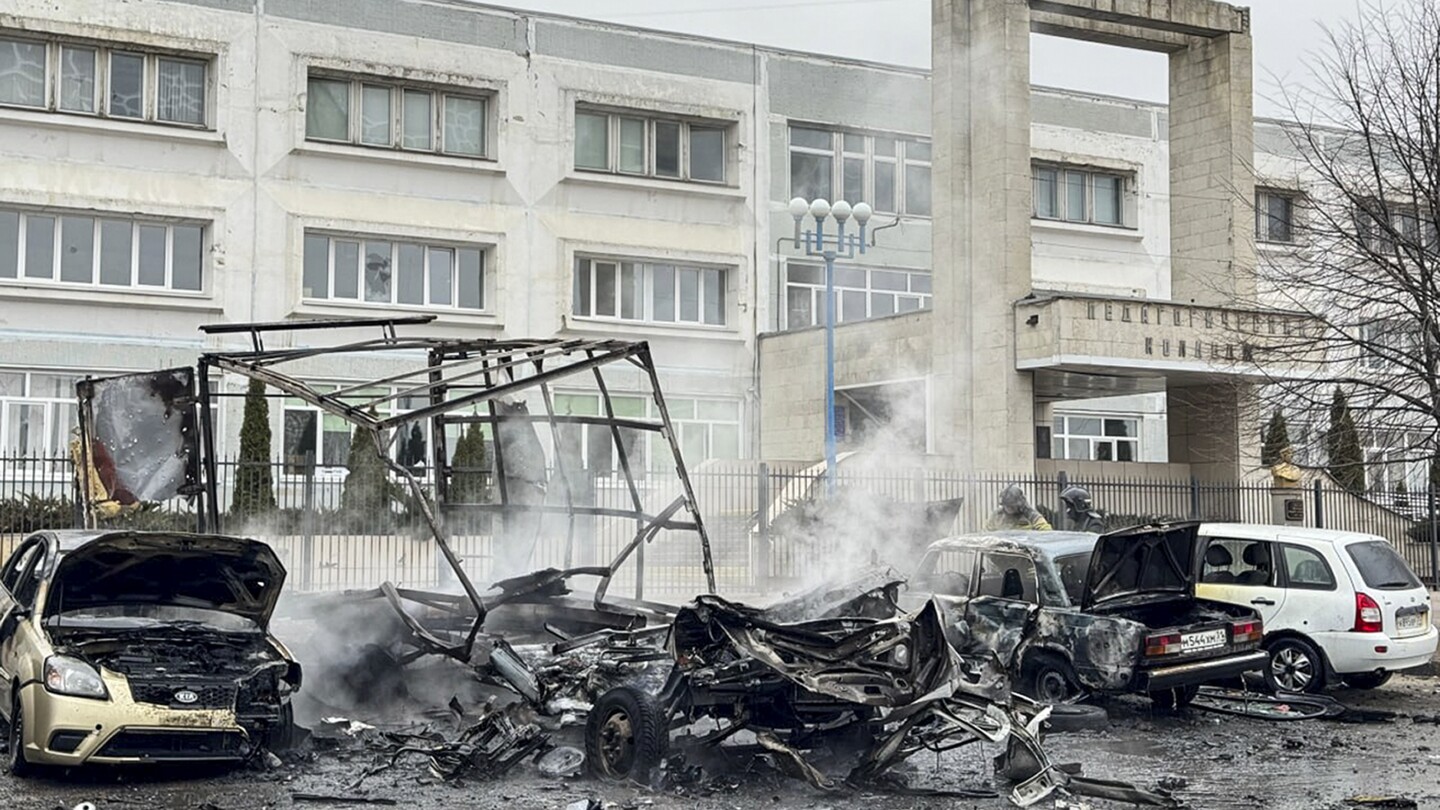Ukraine launched a new massive wave of drone attacks Sunday as Russians cast ballots on the final day of a presidential vote set to extend President Vladimir Putin’s rule for another six years.
The Russian Defense Ministry reported downing 35 Ukrainian drones overnight, including four in the Moscow region.
Moscow Mayor Sergei Sobyanin said there were no casualties or damage.
According to the Defense Ministry, another two drones were shot over the Kaluga region just south of the Russian capital and the Yaroslavl region northeast of Moscow.
The attacks on the Yaroslavl region, which is located about 800 kilometers (500 miles) from the Ukrainian border, were some of the farthest launched by Ukraine so far.
More Ukrainian drones were downed over the Belgorod, Kursk and Rostov regions that border Ukraine and the southern Krasnodar region, the Defense Ministry said.
The attacks followed a series of other Ukrainian drone raids and other attacks over the past few days that Putin described as an attempt by Ukraine to frighten residents and derail Russia’s presidential election.
“Those enemy strikes haven’t been and won’t be left unpunished,” he vowed during Friday’s meeting of his Security Council. “I’m sure that our people, the people of Russia, will respond to that with even greater cohesion.”
As the war dragged into a third year, Russian forces have made some slow and incremental gains along the front line, relying on their edge in firepower, while Ukraine has fought back with more drone attacks deep inside Russia and cross-border raids.
On Saturday, two people were killed and three others were wounded in the Ukrainian shelling of the Russian border city of Belgorod which has faced regular attacks.
The Russian military also claimed it thwarted another attempted cross-border incursion by Ukrainian “sabotage and reconnaissance groups” on Saturday.
The Russian Volunteer Corps — which includes Russians fighting alongside Ukrainian forces — released a video on social media Saturday alleging to have captured 25 Russian soldiers. The claim couldn’t be independently verified.
Cross-border attacks in the area have taken place sporadically since the war began and have been the subject of claims and counterclaims, as well as disinformation and propaganda.

